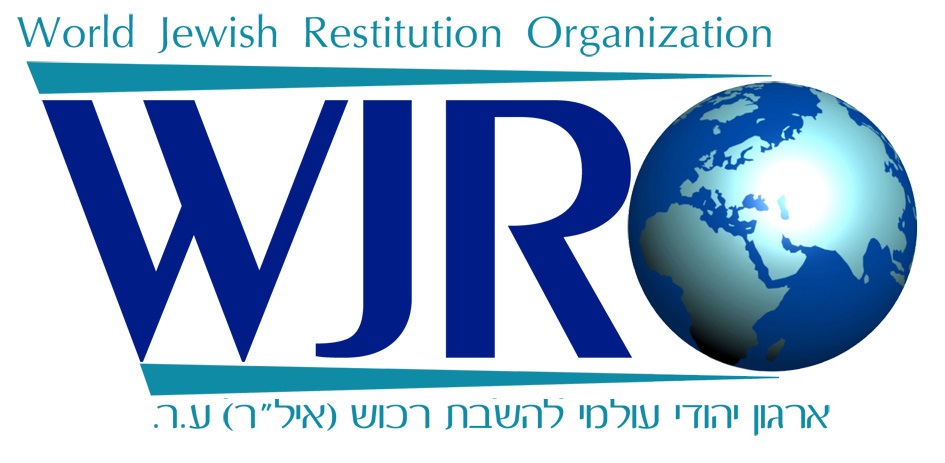
Commemoration without Action is Not Enough
Op-ed by Ovidiu Creangă, Historian, Conference on Jewish Material Claims Against Germany (Claims Conference)
Representatives from major Jewish organizations and diplomatic missions from around the world have gathered this week in Chisinau to observe the 120th anniversary of the Kishinev Pogrom (April 6-8, 1903). For two days, the distinguished guests and local officials will honor and remember the victims of the horrific attacks on innocent Jews that occurred in Chisinau at the turn of the 20th century. The Pogrom shook the Western world like no other before, and triggered mass migration of Jews from the region. Its violence, vividly captured in photographs of the deceased and carried by international newspapers around the world, sparked mass protests in London and Paris. It led to condemnations by the US President Theodore Roosevelt.
The pogrom was instigated by the blood libel – lies that Jews had used the blood of a young Christian boy to prepare for the upcoming Passover meal. This ancient deception has been disproved every time, including in this case, but that did not deter the instigators, notable public figures among them. What started as mere youth disorder on Easter Day rapidly turned into a full-scale devastation. In two days of rampant violence, at least 47 Jewish men, women, and children were killed and hundreds more were severely injured. Jewish women were raped. Over 1,500 homes and businesses ransacked, including synagogues. All of this was done under the gaze of ineffective or, worse, complicit local authorities. In October 1905, hatred of Jews flared up again as protests over the tsarist rule intensified, and innocent Jews in Chisinau were murdered once more, their property destroyed or stolen. Growing antisemitism in the crumbling Russian Empire and the systematic failures of those sworn to protect the innocent led scores of Jews to emigrate to Palestine, the United States, and other places.
The Kishinev Pogrom, bad as it was, paled in comparison with what unfolded in the same city less than four decades later. In 1941, as Hitler’s armies overran Bessarabia, German and Romanian forces shot thousands of Jews in cold blood and tens of thousands more were expelled from their homes and concentrated in makeshift camps and ghettos. In Chisinau alone, some 12,000 Jews were forced into a ghetto before being deported across the Nister River in Transnistria (a region between the Nister River and the Bug River under Romanian administration). Plunder of Jewish homes and property immediately ensued. The Romanian administration in Bessarabia took the lion’s share by legalizing the theft under a program called “Romanianization” (selling or renting Jewish assets to ethnic Romanians primarily).
The Soviet regime returning after the Second World War incorporated the province into the Soviet Union. It whitewashed the agony of Bessarabian Jews under the banner of fascist persecution against Soviet citizens. The Soviet authorities in Moldova nationalized Jewish private and communal property remaining after the Holocaust, and demolished or repurposed Chisinau’s many synagogues, some true artistic gems.
There is much to learn from this sad history, which is why we pause to recall it. Since Moldova’s independence from the Soviet Union in 1991, progress has been made to acknowledge Jewish suffering. The country has adopted January 27 (International Holocaust Remembrance Day) as the national day of remembering the victims of the Holocaust, and government initiatives (like the Action Plan for 2021-2024) have been designed to confront social ills like antisemitism, xenophobia, and intolerance through educational and justice reforms. Importantly, in 2009 Moldova joined with 46 other countries to endorse the Terezin Declaration, committing to rectify the consequences of wrongful property seizures during the Holocaust and its aftermath – a commitment to Nazi victims renewed at the second International Terezin Declaration Conference in November 2022.
But so far in practice, Moldova has chosen commemoration over action. To this day, nothing has been returned to the Jewish Community of Moldova (the successor organization that now represents the Jewish communities decimated in the Holocaust), nor has any compensation been provided for what was unjustly taken. Instead, outrageously, the Jewish Community was forced to repurchase or rent from the state its own synagogues to provide for the cultural and religious needs of the nearly 5,000 Jews living in Chisinau.
To remember the victims of the Kishinev Pogrom and the subsequent attempts to extinguish Jewish life from Moldova means taking action to right the wrongs. Memory without action is not enough. This is why it is vital for Moldova to appoint a Special Representative in government to work together with the Jewish community of Moldova and the World Jewish Restitution Organization to make progress on Holocaust-era issues and commit to enacting legislation that returns Jewish property confiscated during and after the Holocaust. Actions such as these are the right thing to do and will align the country with the values of Western democracies and of the European Union that Moldova seeks to join. Commemorating without change is a luxury Moldova can no longer afford.
For media inquiries please contact pr@wjro.org.il





